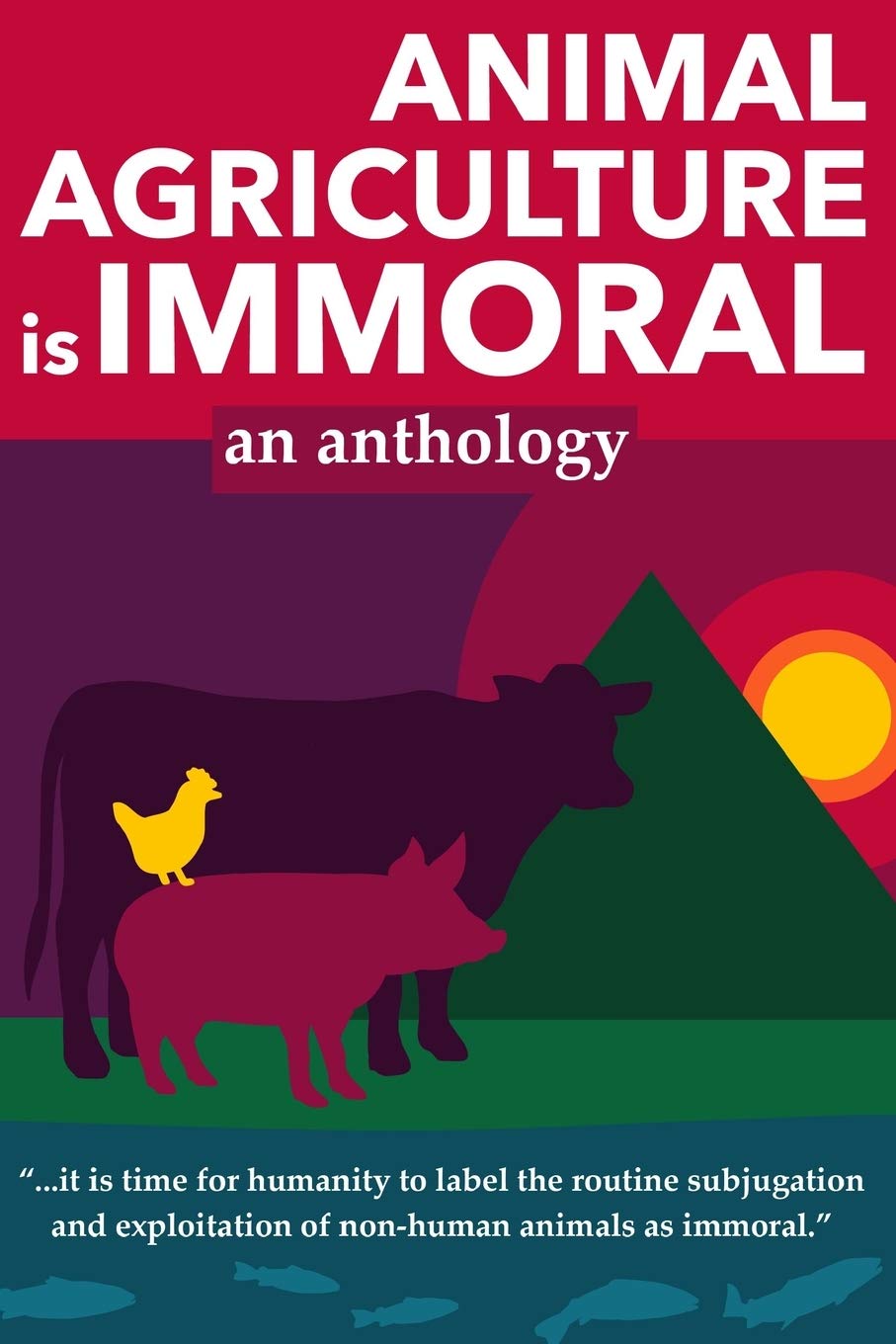Book Review
ANIMAL AGRICULTURE is IMMORAL: an anthology
Sailesh Rao, Editor
Cover design by Suzanne King
A Climate Healers Publication (2020)
Reviewed by Karen Davis, PhD,
President of United Poultry Concerns
Dedicated to all of the animals with whom we share this beautiful planet, and to all of the children who will inherit the consequences of our choices.
Animal Agriculture is Immoral is a collection of short scholarly essays assembled in the wake of the coronavirus pandemic to explore the question of animal production and consumption through the lens of social and religious history and contemporary information about the state of the planet and the moral implications of how we treat each other and our fellow forms of life. Contributors ask, “How much horror do we want to contribute to this world?” Why do we subject innocent, defenseless creatures to “such cruelty, anguish, and grief”? Can we create “a new normal of compassion and care for everyone – animals and the planet included”?
Many of us have hoped that the global coronavirus pandemic that erupted into public consciousness in early 2020 would awaken people to the myriad dangers posed by global animal agriculture and the immorality of this massively destructive system in which billions of land animals and aquatic animals suffer in surrealistic misery and filth. The coronavirus responsible for covid-19 originated in Chinese “wet” markets, where wild and domestic birds, mammals, reptiles, fishes and virtually every creature that can be caught or raised jostle together in squalid shops where customers pick out animals and all manner of carnage to consume.
But it isn’t just them. The exact same squalor characterizes the industrialized confinement buildings and slaughter complexes, commonly called factory farms, that arose in the 20th-century United States and Europe to replace traditional farming. Factory farms pollute the planet and spread diseases, including novel zoonotic diseases and strains of old pathogens that infect the animals and the humans who handle and consume them and their “products.”
One difference between factory farms and live animal markets superficially is that the live animal markets, situated in ethnic neighborhoods in U.S. cities and elsewhere, hide nothing, whereas factory farms hide everything that takes place before the final products appear in restaurants and supermarkets, “sanitized” and dissociated from the living creatures whose suffering, however invisible, is incorporated into every bite and swallow.
Even so, with the Internet, we can no longer assume that mainstream people “don’t know.” The growth of vegans/vegetarians and vegan/vegetarian food products in the past 20 years can be traced in large part to Internet revelations and social media. By contrast, if you follow the mainstream media, you will not learn from them what animals or their slaughterers go through. Rather, you will hear about “meatpackers,” and “poultry processors” and “essential workers” and “euthanasia” – a rhetoric signaling the corporate advertisers to whom these outlets are beholden.
Animal Agriculture is Immoral cites religious bases for a vegan world, particularly in ancient Hebrew teachings. A Muslim contributor makes a passionate plea to people to “be brave and advocate for a transition from animal agriculture to horticulture.” These pleas for justice, compassion and a cared-for planet reflect sorrow for the Earth and its creatures in our contemporary world. Contributors, including myself and UPC projects manager Hope Bohanec, maintain that “supremacy” doctrines – not just White Supremacy but the arrogant speciesist belief in Human Supremacy – are a curse. The question is whether we care enough to change or whether we’re content to continue down our dark path and drag every living soul down with us. – Karen Davis
Order from United Poultry Concerns at www.upc-online.org/merchandise or by check or money order to UPC, PO Box 150, Machipongo, VA 23405. $10 includes shipping. Also available on Amazon.
